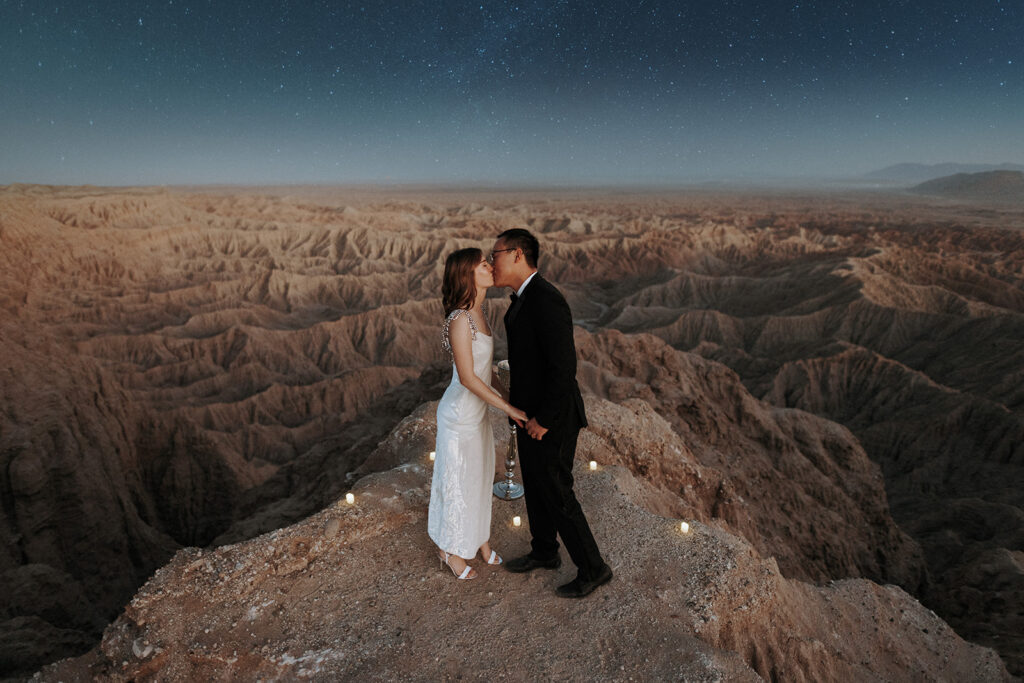
Hey there! Luke here. In the world of wedding and elopement photography, couples are constantly seeking unique and breathtaking ways to immortalize their love stories. One trend that has taken the industry by storm is the incorporation of astrophotography (aka night sky photos) into engagement and elopement photos. But seriously, imagine exchanging vows under a blanket of stars or stealing a kiss under the Milky Way. In this here blog post, we’ll explore the magical world of astrophotography and how it can elevate your engagement or elopement photos to celestial heights.
1. Choose the Right Location for Your Night Sky Photos!
Astrophotography is heeeavily dependent on the absence of light pollution, so selecting the perfect location is crucial. You need to go to a really remote area where the night sky can truly come alive during your engagement or elopement. Mountains, beaches, and deserts are popular choices (Joshua Tree and Anza Borrego in California are some of my favorites), providing expansive views that allow the stars to be the focal point of your images.
Here’s a link to my favorite light pollution map: lightpollutionmap.info. You want to choose a location in a gray zone on the map for the brightest stars.
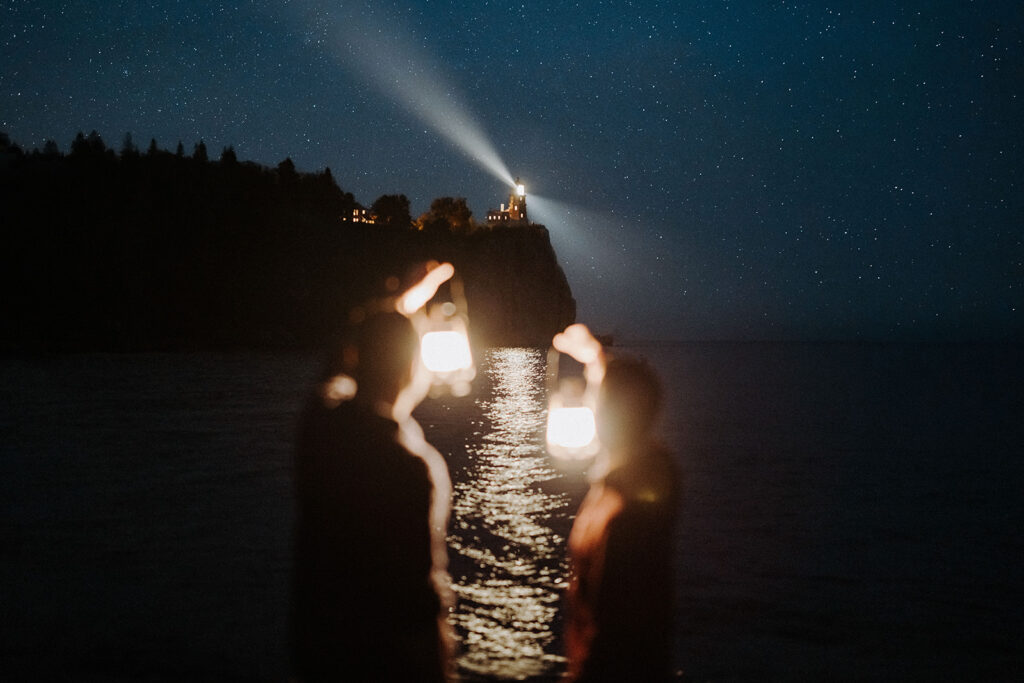
2. Schedule Your Engagement or Elopement During a New Moon
Planning is key when it comes to incorporating astrophotography into your engagement or elopement shoot. Research the best times of the year for clear skies and minimal moonlight interference. (Sites like astrospheric.com can help with this.) A new moon phase is ideal, as it ensures a dark sky that allows the stars to shine brightly.
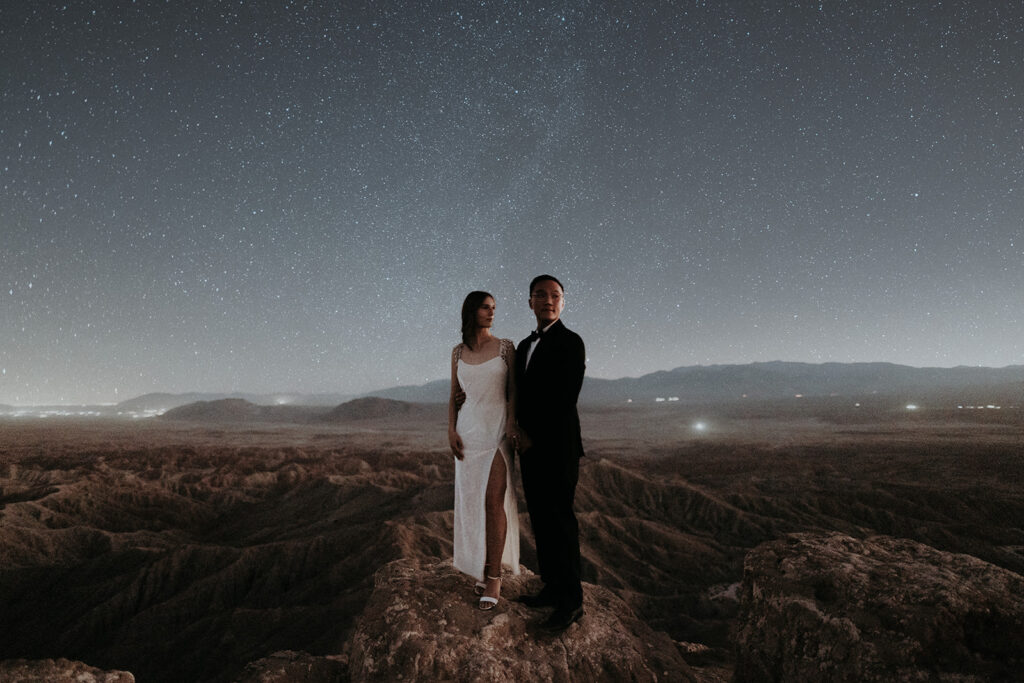
3. Work with an Elopement Photographer with Astrophotography Experience
Not every photographer is experienced in capturing the magic of the night sky. Look for a professional couples photographer who has a portfolio showcasing successful nighttime shoots. Astrophotography requires a special skillset and gear like expensive lenses with wide apertures. This expertise is essential for capturing the beauty of the stars while ensuring you and your partner remain the central focus.
Shameless Self Plug: Before I started shooting elopements and engagements, my first love was astrophotography and I love incorporating it into my work when possible. If you’re interested in chatting about an out-of-this-world shoot, contact me here!
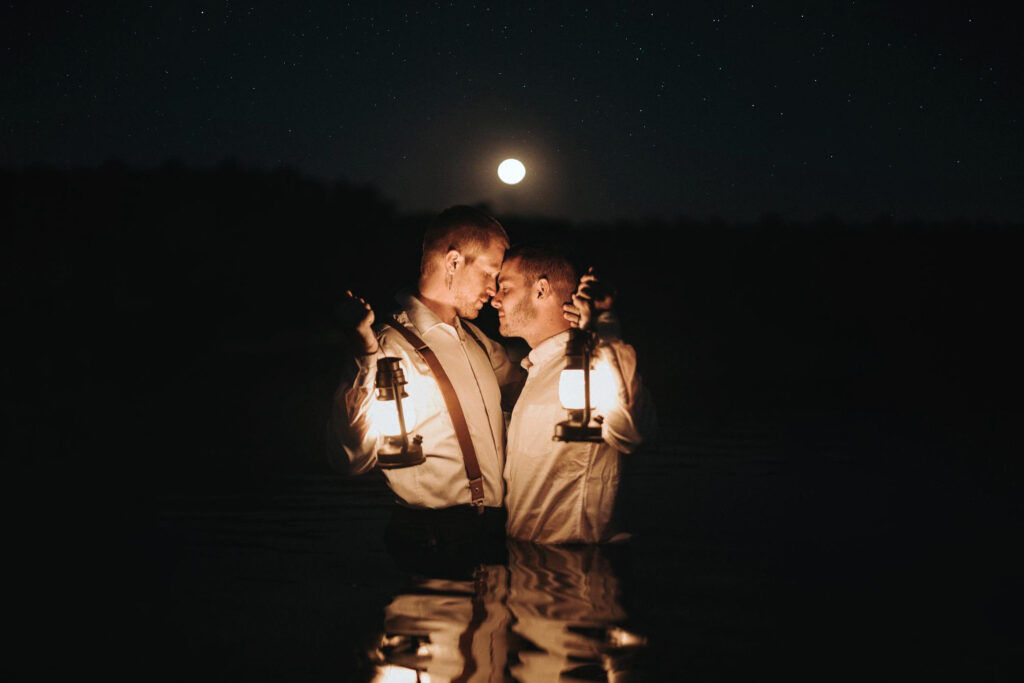
4. Incorporate Props and Lighting into Your Photos
Enhance the ethereal atmosphere of your engagement or elopement photos by incorporating props and lighting. Soft, warm lighting can add a romantic glow to your images. Props like lanterns, fairy lights, or battery-operated candles can also create a whimsical ambiance against the cosmic backdrop. They also help you stand out from the background!
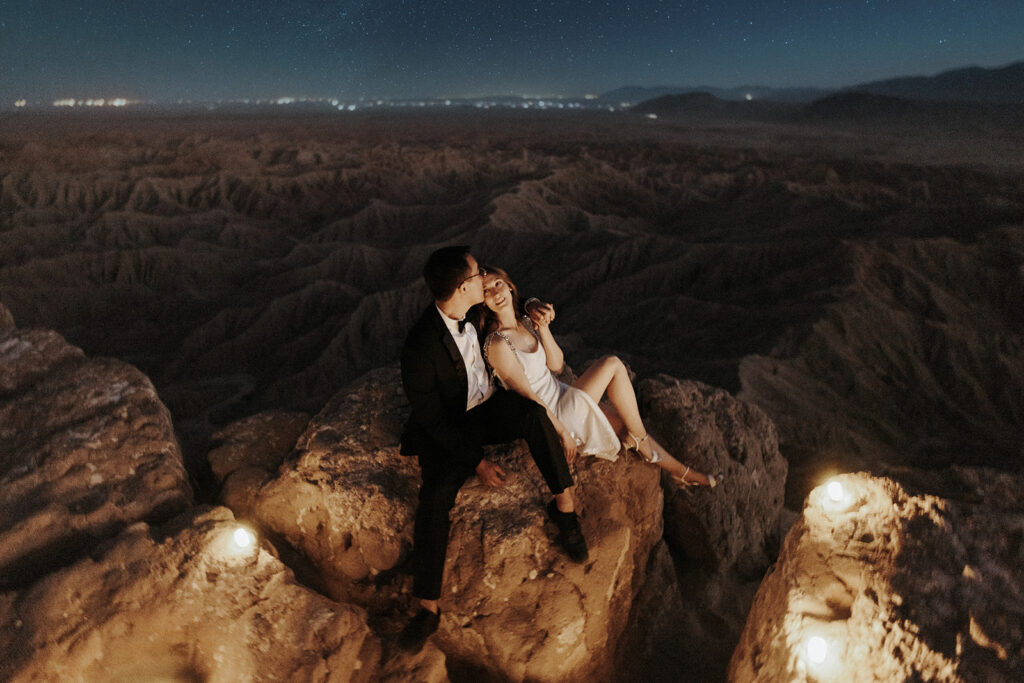
5. Styling for the Cosmos
Consider the attire you and your partner will wear for the shoot. Lighter, solid colors often work well against the night sky, while reflective elements or sequins can catch and amplify the available light. (Cue “Bejewled” by Taylor Swift.) Don’t forget to bring layers or a blanket to stay comfortable during cooler nighttime temperatures. You can wrap up in it together!
Incorporating astrophotography into your engagement or elopement photos adds a touch of celestial magic to your love story. From choosing the perfect location and timing to working with a skilled photographer with the right knowledge and equipment, every detail plays a role in creating images that are truly out of this world. So, set your sights high, gaze into the stars and ponder the universe, and let the cosmos become a timeless backdrop for your night sky engagement or elopement photos.
6. How to Make a Starry Night Proposal Work
While a proposal under the stars sounds like a dream, it’s important to consider the unique challenges it brings. Even with advanced camera gear, capturing both the magic of the night sky and the raw emotions of the moment can be tricky, especially in such low light.
Surprise proposals where the photographer hides in the dark add another layer of complexity, as they depend on everything aligning perfectly — something that’s hard to guarantee. Without lighting like LED candles or string lights, your emotions may not be visible once it gets too dark, and you’ll likely appear as silhouettes. While lighting isn’t always necessary during the middle of blue hour, as there’s often still enough natural light for crisp photos, it becomes essential as twilight fades further into darkness.
Timing is crucial. A proposal under the stars works best during a planned session, happening toward the middle of blue hour when the balance of light is just right. Proposing too late, after twilight has faded, would require much longer exposures — often 5 seconds or more — making it nearly impossible to capture movement without blur. This means key moments like getting down on one knee or your partner’s emotional reaction might not come out as clearly as you’d hope.
While a session may take away some of the surprise, it adds so much more in return. It ensures that your proposal is beautifully captured without the stress of coordinating every detail perfectly in the dark. You’ll have stunning photos of the big reveal during blue hour, followed by breathtaking night-sky portraits to round out the experience. This approach blends spontaneity with thoughtful preparation, creating a moment that’s as magical to look back on as it is to experience.
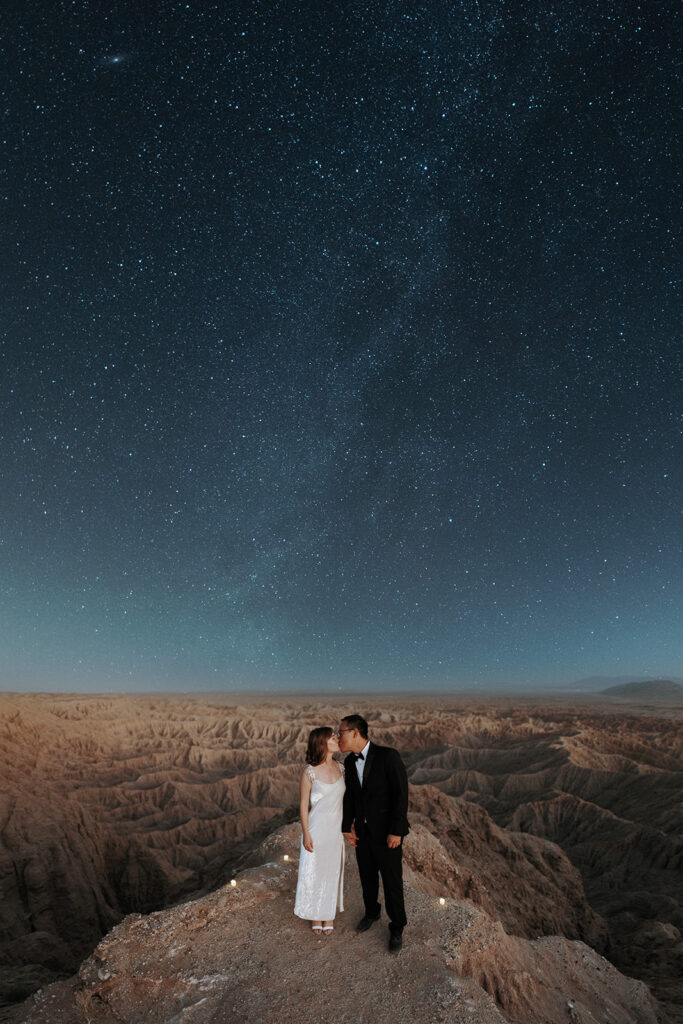
7. Working with Mother Nature
When planning a proposal under the stars, one crucial factor to consider is the unpredictability of weather and sky conditions. Even on a clear day, factors like haze, moonlight, or light pollution can impact visibility and the overall look of your photos. A full moon, for example, can wash out the stars, creating a much brighter sky than anticipated. Similarly, unexpected clouds or fog can obscure the stars altogether, making it challenging to capture the dreamy backdrop you’re envisioning.
This unpredictability means flexibility is key. With a planned session, you have the option to work with your photographer to adjust the timing or location based on conditions, ensuring you get the best chance for a clear sky. For couples wanting to minimize the risk, consider asking your photographer if they’re willing to stay for an additional night as a backup (for an additional fee). This option provides peace of mind, knowing you’ll still get incredible photos even if the weather doesn’t cooperate on the first try.
Thoughtful preparation like this ensures you can focus fully on the moment, knowing your proposal will be beautifully documented, regardless of what Mother Nature decides to do.
Okay, you guys – I hope this little guide has been helpful if you’re thinking about having night sky engagement photos or including them in your elopement! Thanks as always for reading, and feel free to contact me with any questions. Take care and stay awesome 🙂
LEAVE A COMMENT
Comments